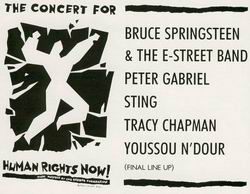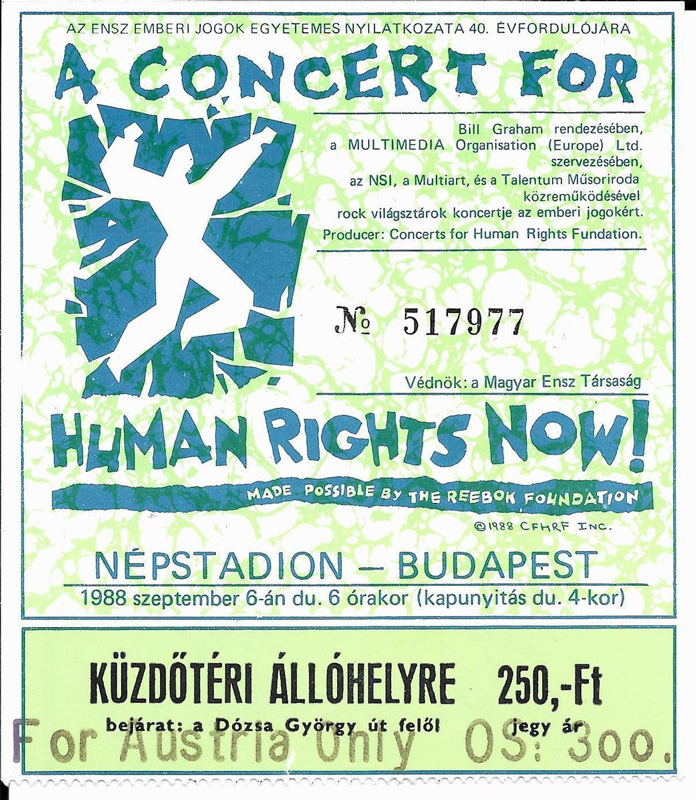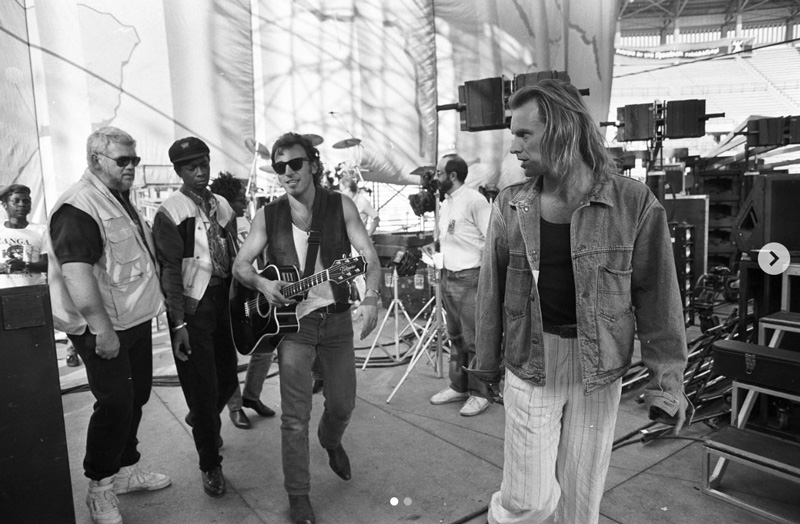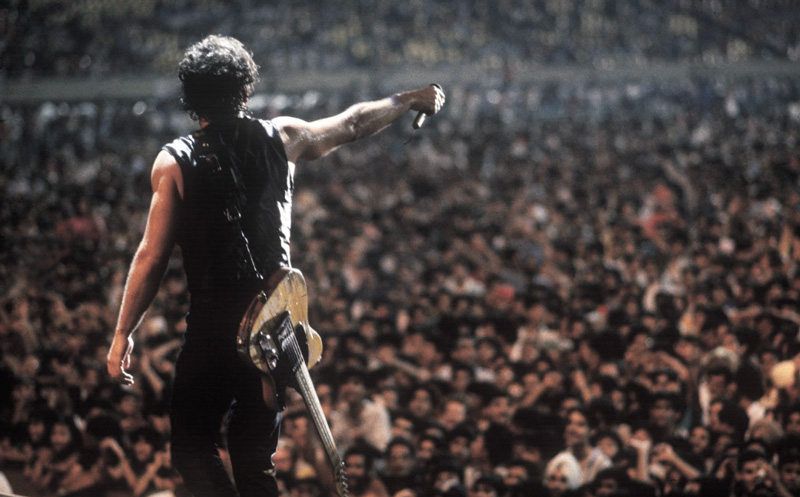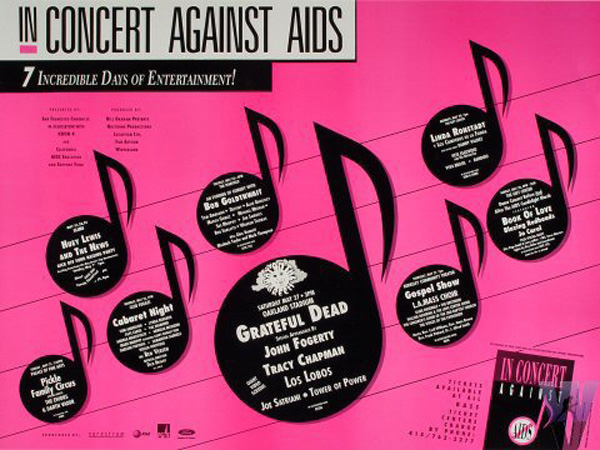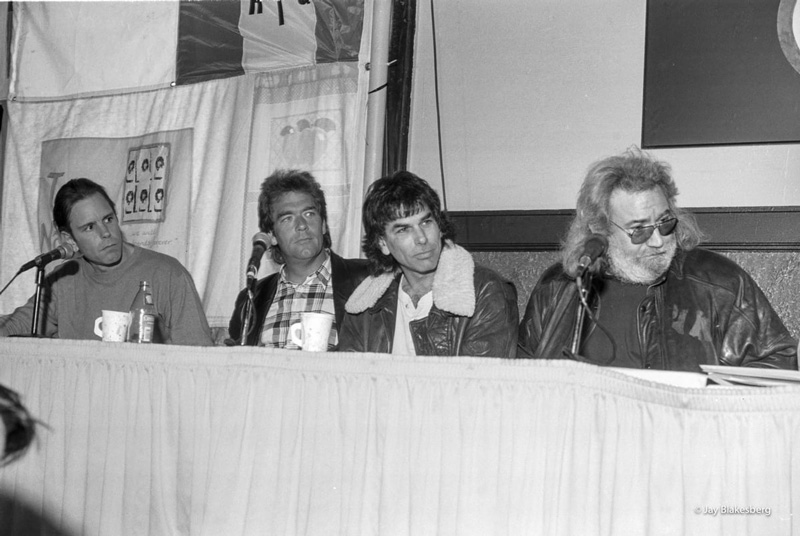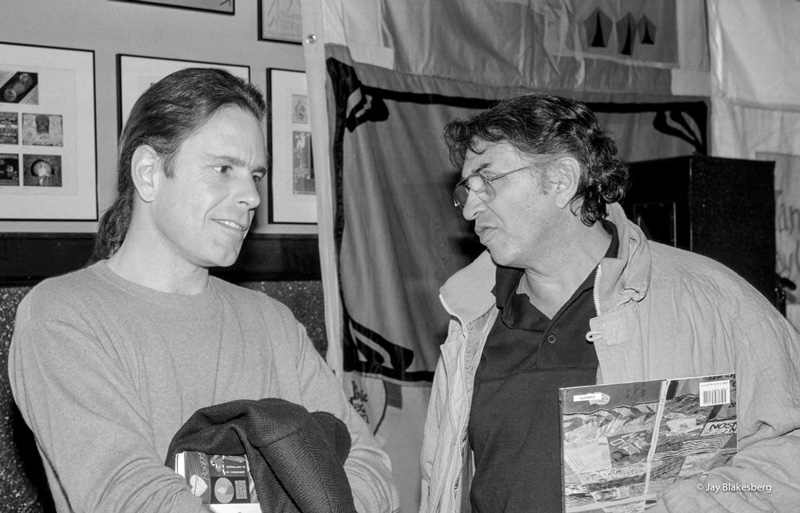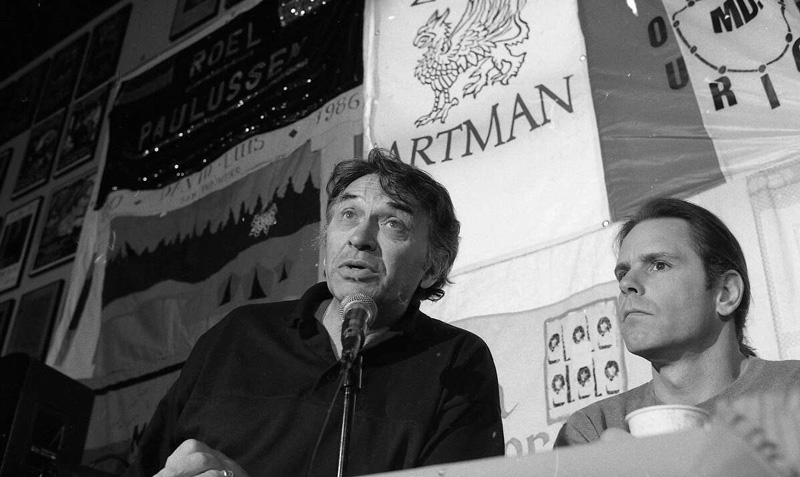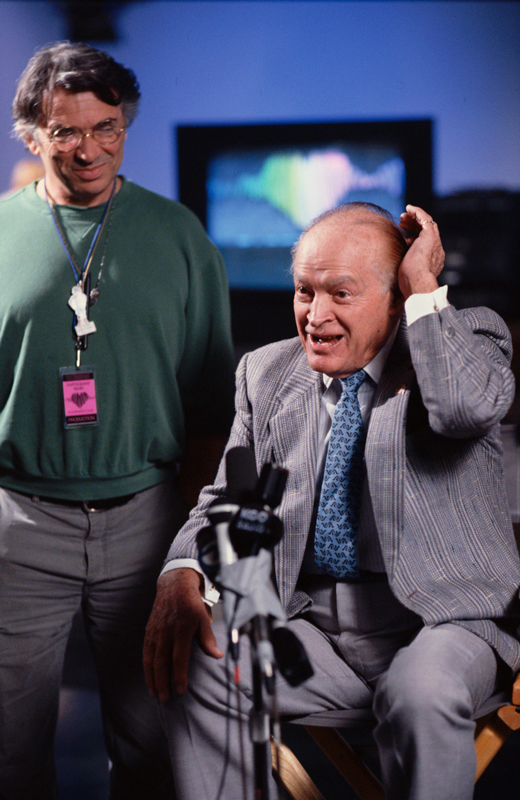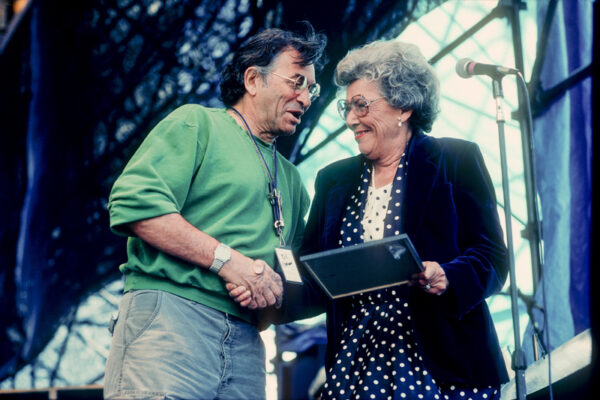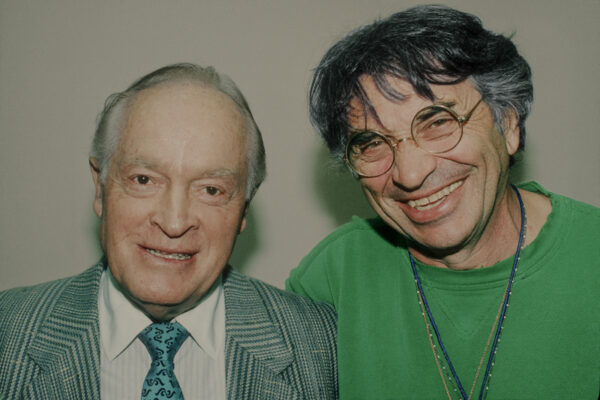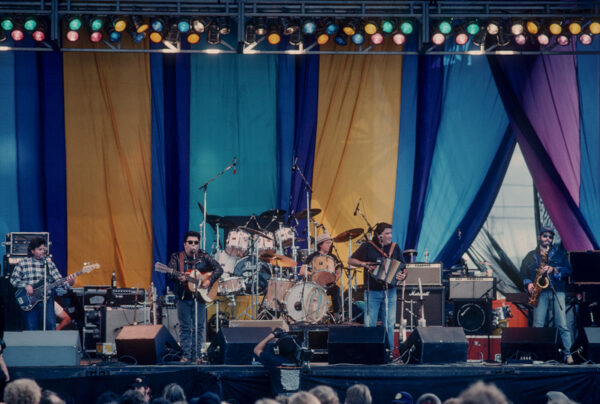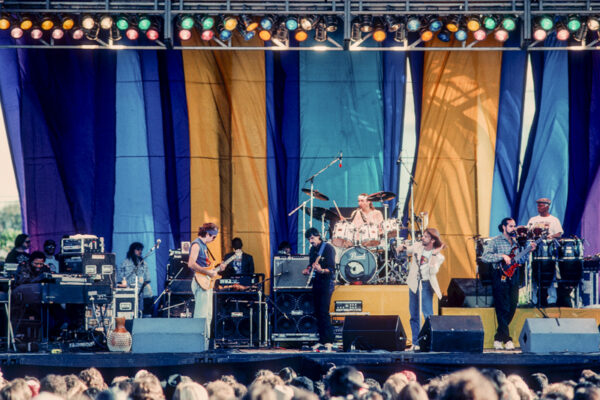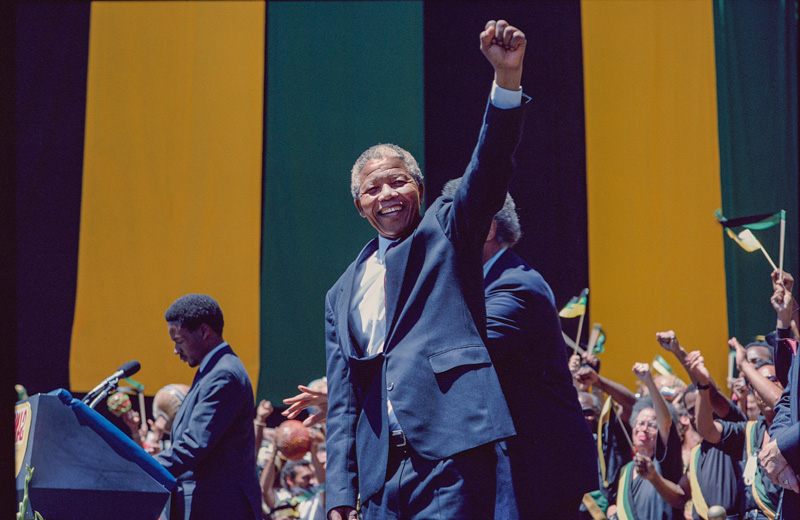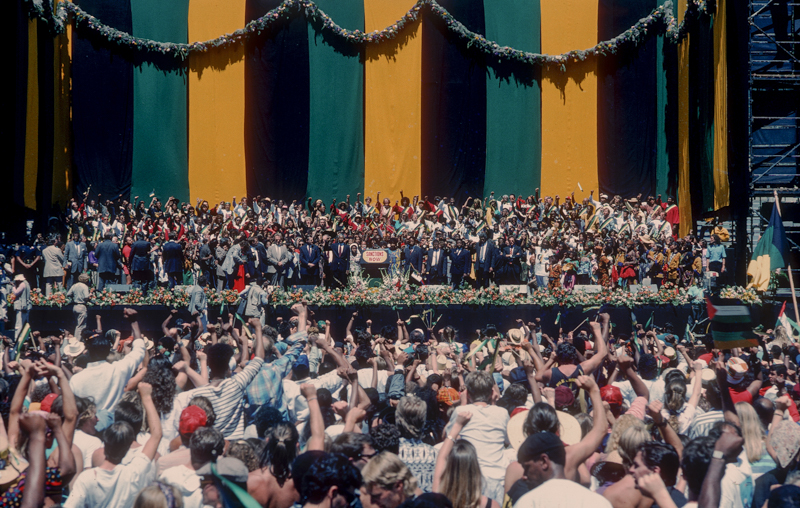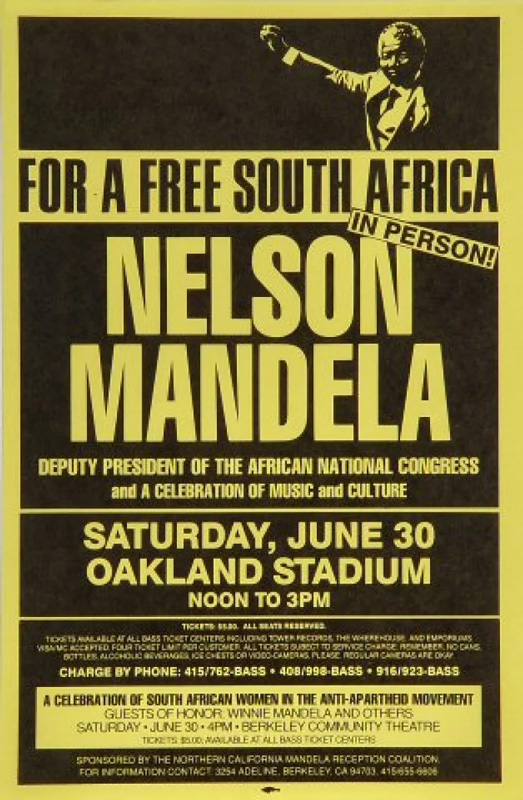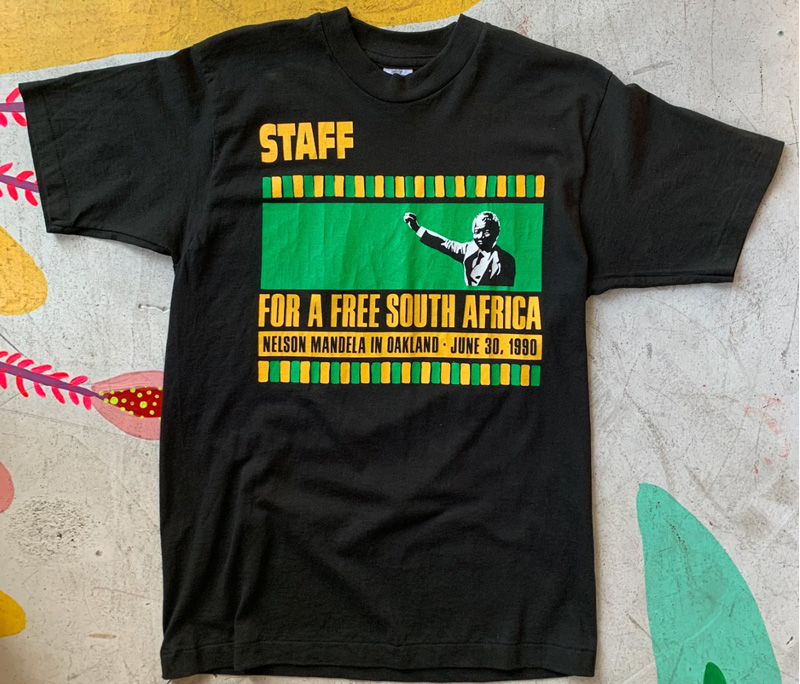Click each bar to read short interviews and quotes about Bill and his career
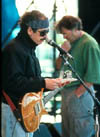 The thing that sticks out is the last phone call that I had with Bill. He sounded very different. He was very serene. He had a different kind of voice. He said, “Stay well, my friend.” We would never talk about business; we always talked about benefits for people, you know healing people or helping people, stuff like that, but this time he was much more at ease, you know. It wasn’t like he used to be, at such a frenetic pace. I feel like he had reached a point of realization about certain conditions and circumstances. Just tell people that Bill Graham was a true lion of Judah. He walked like a lion, and he lived like a lion.
The thing that sticks out is the last phone call that I had with Bill. He sounded very different. He was very serene. He had a different kind of voice. He said, “Stay well, my friend.” We would never talk about business; we always talked about benefits for people, you know healing people or helping people, stuff like that, but this time he was much more at ease, you know. It wasn’t like he used to be, at such a frenetic pace. I feel like he had reached a point of realization about certain conditions and circumstances. Just tell people that Bill Graham was a true lion of Judah. He walked like a lion, and he lived like a lion.
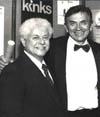 We knew each other since around 1952, when he worked as a waiter up in the mountains at the President Hotel — he worked many hotels. And we hit off a great friendship, since he was in love with Latin Music. He was a very good dancer. He wanted to learn Spanish. Usually when people want to learn Spanish, if they don’t speak the language, they learn the dirty words first, and that’s what he learned. I had the privilege of playing his birthday parties many years. One big one was at Roseland in New York, and I played New Year’s Eve at Winterland and another in a big hangar: that was the last one, three or four years ago. I knew what kind of music he loved, and he would just take off and have a ball. I can see his face now, full of happiness, dancing.
We knew each other since around 1952, when he worked as a waiter up in the mountains at the President Hotel — he worked many hotels. And we hit off a great friendship, since he was in love with Latin Music. He was a very good dancer. He wanted to learn Spanish. Usually when people want to learn Spanish, if they don’t speak the language, they learn the dirty words first, and that’s what he learned. I had the privilege of playing his birthday parties many years. One big one was at Roseland in New York, and I played New Year’s Eve at Winterland and another in a big hangar: that was the last one, three or four years ago. I knew what kind of music he loved, and he would just take off and have a ball. I can see his face now, full of happiness, dancing.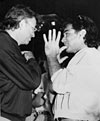 Bill and I were waiters in a club in Atlantic Beach together in the Fifties. I used to jerk sodas downstairs, and he was a waiter upstairs, and we were there for the same reason: Tito Puente. We were both lovers of the Latin music of the Fifties in New York. That’s where we started, and it went on form there, and then through the years with the Grateful Dead. He was the chief Deadhead, you know. He was the mambo king, but he also loved the Grateful Dead and that whole scene.
Bill and I were waiters in a club in Atlantic Beach together in the Fifties. I used to jerk sodas downstairs, and he was a waiter upstairs, and we were there for the same reason: Tito Puente. We were both lovers of the Latin music of the Fifties in New York. That’s where we started, and it went on form there, and then through the years with the Grateful Dead. He was the chief Deadhead, you know. He was the mambo king, but he also loved the Grateful Dead and that whole scene.
Bill was a ruthless business fellow. He played hardball, and every game was the World Series, but he did things that most people don’t know about. He planted trees in Israel for my grandmother. He cosigned on a loan for my first car when me and Bob Weir were hitchhiking to the Fillmore. He financed the seed money for Drumming at the Edge of Magic and Planet Drum, my two books. I asked him to give me some money for this research, which took ten years, and he said, “Why? Why should I give you money for a drum book, of all things?” I said, “Because you love drums, Bill and what else will you do with your fucking money?” So he gave me the money for the drum books.
 The first time we worked for Bill was in 1969, at Winterland. And I think for the first couple of years I knew him, we were always hammer and tongs with each other. He as one of those guys where if you didn’t know him, he could really get up your nose. I think nearly everybody may have started kind of like that with Bill. But then slowly, as we got to work more and more together, we started to appreciate the man’s work. I mean that job that he did —it’s like more than being a general. To make a tour work and to put it all together and be able to deal with people and get the show on and everything that has to be done, you start to appreciate what an extraordinary person he was. Bill and the Stones came up at the same time. I mean, there was no such thing as these sort of huge tours of football stadiums. You had to improvise as you went along. So we kind of did it together. And because nobody had ever done anything on this scale before, it was kind of like experimenting every time, you never know what was going to hit you in the face the next day.
The first time we worked for Bill was in 1969, at Winterland. And I think for the first couple of years I knew him, we were always hammer and tongs with each other. He as one of those guys where if you didn’t know him, he could really get up your nose. I think nearly everybody may have started kind of like that with Bill. But then slowly, as we got to work more and more together, we started to appreciate the man’s work. I mean that job that he did —it’s like more than being a general. To make a tour work and to put it all together and be able to deal with people and get the show on and everything that has to be done, you start to appreciate what an extraordinary person he was. Bill and the Stones came up at the same time. I mean, there was no such thing as these sort of huge tours of football stadiums. You had to improvise as you went along. So we kind of did it together. And because nobody had ever done anything on this scale before, it was kind of like experimenting every time, you never know what was going to hit you in the face the next day.
He never yelled at me. I’ve seen him yell at loads of other people. And it was quite an interesting sight, you know? “Bill’s having a go at so-and-so; let’s go watch!” But to me, he was always very polite. I think it’s because he knew he’d get more out of me that way.
So Bill came to see us, and he seemed to have this idea that he was going to have to beg us to play. His appeal was to use the voice of the people. He kept talking about how we owed it to “the people” to play. The heaviest part is when he said something like “the peoples’ hearts are bleeding. You must come down out of the darkness and play for the people.”
On one hand, I was completely taken by this. But on the other hand, the truth was he didn’t have to convince us. We were already planning on touring after the second record anyway. So as he talked about our obligation to the people, Albert Grossman, our manager, was sitting there cracking up. But I didn’t have the nerve or heart to tell him the truth. So I just said, “Bill, how do I meet these people you speak of?” And he said, “The best place would be in The Winterland, in San Francisco— that’s where there’s the most love —and then at the Fillmore East in New York.”
Ironically, after all that, when it finally came time to play the Winterland, I was as sick as I’ve ever been in my life. And as the show got closer and closer, I got worse and worse. As a last resort, Bill and Albert Grossman came up with the idea of getting this Freud hypnotist to help me. We were desperate— Bill had been talking about “the people” for so long, they were like refugees in my mind, and I wasn’t about to let them down. So this hypnotist made it so I couldn’t remember how badly I felt. And it worked, for a while. He stood on the side of the stage, and every time he saw me starting to fade, he would say the word grow, and somehow it got me through the show. And “the people,” as it turned out, were lovely people.
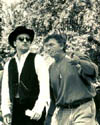 BIG BOOMING VOICE… MORE OF A PERFORMER than a lot of the acts he promoted. In the early years, a great guide. We fought with him— I’m sure a lot of people did. But we’ll miss him. He was fun. Rock and Roll has lost another great…actor.
BIG BOOMING VOICE… MORE OF A PERFORMER than a lot of the acts he promoted. In the early years, a great guide. We fought with him— I’m sure a lot of people did. But we’ll miss him. He was fun. Rock and Roll has lost another great…actor.
I once saw Bill take a man who had stolen into our show at the Fillmore East in ’69 back to his point of entry, personally escort him out. The man had broken through a roof light on the seventh floor backstage. As he pushed him up through the broken window back onto the roof high above the busy street, he said, “Come to the front door like everyone else and I might let you in for free, you mad motherfucker.” He turned to me and said, “He’s crazy to come over the roof but discriminating— that should be rewarded.”

